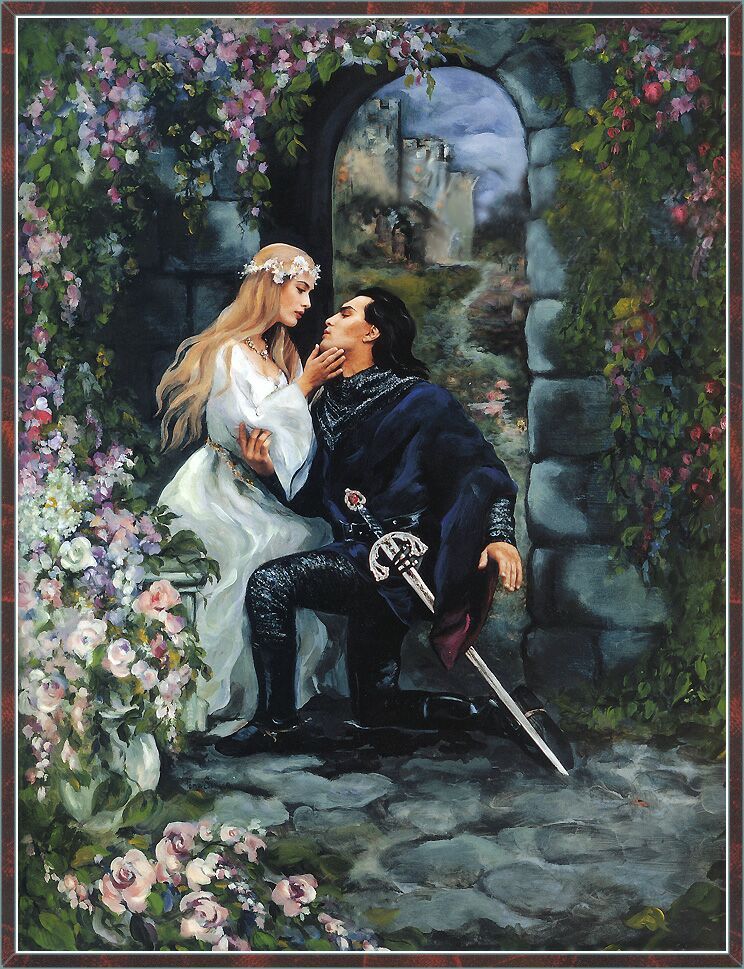Characteristics of Courtly Love
Contents
The very interesting art of courtly love was a craze during the 12th century. It is believed to be originated in a place known as Aquitaine, France. Slowly the practise was also adopted by other European countries. In the high profile English courts, the art of courtly love gained prominence from the 13th century until the late 15th century.
Marriages during this period were arranged purely for monetary benefits or to gain a higher social status. Arranged marriages had nothing to do with love or romantic feelings. So the need for romance outside marriage was strong and people were enthusiastic about courtly love and they even adhered to the rules (to remain chaste and loyal towards their married partners).
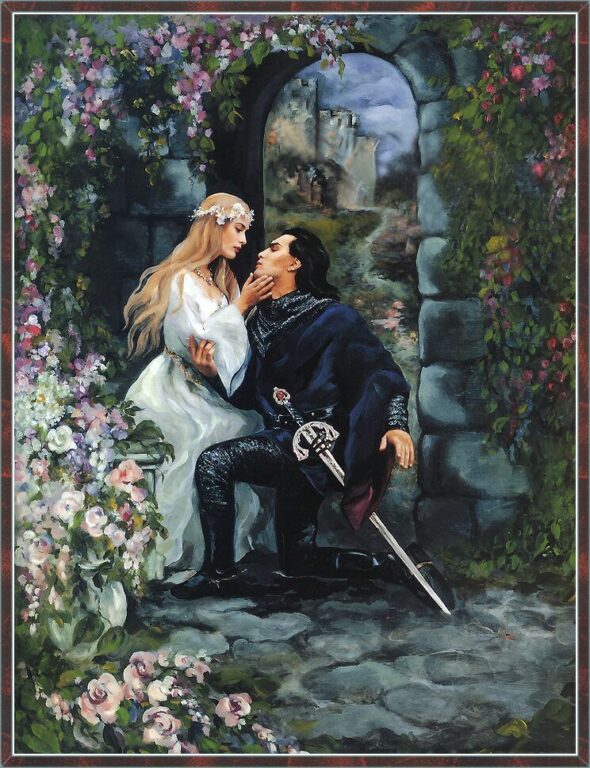
Middle Ages period was burdened with excessive violence and wars. Therefore, everyone of that historical period looked upon courtly love as a great respite. The 12th-century French citizen ‘Andreas Capellanus’ wrote down the rules or the main features of Courtly Love.
Courtly Love: Rules and elements; some exclusive lines
Rules of Courtly love:
- Marriage is not an excuse to shy away from love
- Double love cannot exist
- Love is an emotion that increases or decreases with time
- True love is found only after maturity especially for boys or men
- When a beloved or partner dies, the widow has to mourn or grieve for at least a period of two years
- No one in this earth should be lacking for love
- Greed can kill the lovely emotion of love
- If your love is true then it should lead to the marriage altar
- Never be ashamed of your love
- A true lover only yearns for his beloved and no one else
- Love that is made excessively public does not last long
- A love that is difficult to attain is indeed prized
- When a true lover catches a glimpse of his dear beloved, his heart beats faster
- When new love arrives, old love is forgotten easily
- The essence of good character is what makes any man worthy of true love
- Diminishing love is difficult to revive or sustain
- Real jealousy always keeps love alive
- When jealousy increases, it also increases the fervour of love
Other interesting and entertaining lines were penned down that embraces the true feelings of love. The Frenchman felt that a person consumed by the fire of love hardly eats or sleeps. A true lover always thinks of his beloved and no other things interest him. A lover with true love is never carried away by too much passion. A man who loves truly is always consumed by her thought. It is not unusual to find one woman to have two lovers or one man to have two beloveds. Such were the ideas are written as elements or rules of courtly love by Andreas Capellanus.
The concept of Courtly Love in the Medieval Times
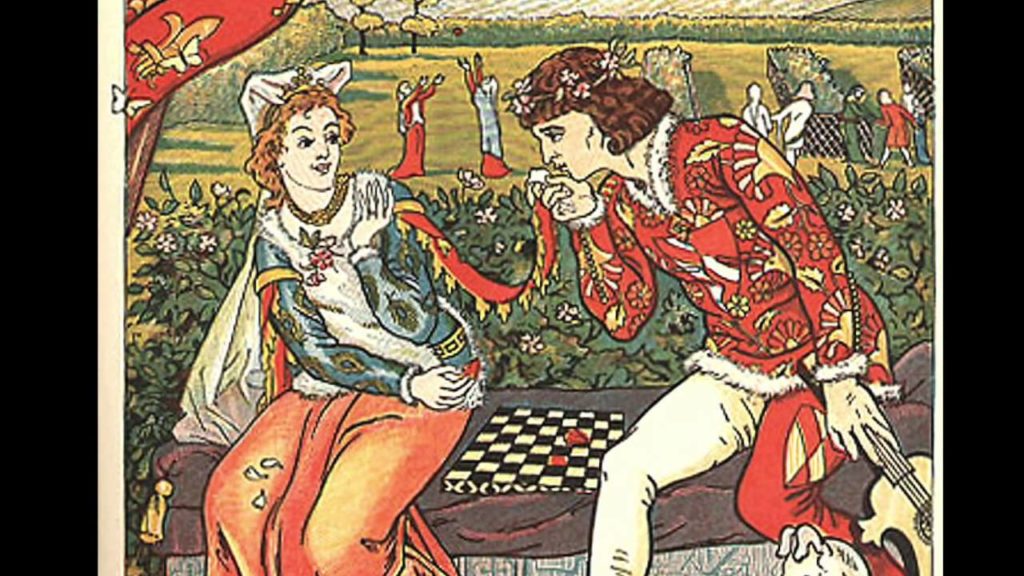
The rules of courtly love generated great interest in the people. The rules also hinted or demonstrated that the love game was dangerous. Courtly love often led to many issues or problems within the Kings court and its royal circle. Courtly love was a typical medieval European concept of love. During the Middle Ages, it generated ideas that were developed for a ‘game of love’ that originated from courtly love social practises. It was perceived as enriching and noble practice.
Courtly love had a direct connection to the Chivalry section of society. It was also popular as ‘Code of Chivalry’ during those times. This term rightly described the behaviour of the knights within the royal courts. Courtly love supported the behavioural attributes of kingly knights towards the ladies of nobility only; this concept was not applied to attract the peasant class women.
Songs, Poems, and Literature of Courtly Love
There were many poems and songs dedicated to courtly love by the travelling poets who were also known as troubadours. These gifted poets used to stay in a court for a considerable period of time to entertain the nobility under the sponsorship of an aristocrat member. These singers or poets would stay at royal courts to sing romantic poetries or love-drenched lines. Most of these poems gave women an elevated status and showed her as a strong character, who managed to change her lover and make him a good or better person.
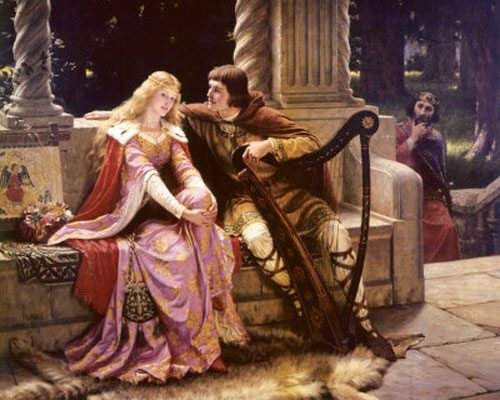
Medieval literature is filled with numerous examples of courtly love. In the Arthurian legend, Sir Lancelot confesses his deep love for Lady Guinevere and even breaks the rules of courtly love by taking the lady for his own. Likewise, the lovely poem “The Faerie Queene’ expresses the knight Redcrosse courtly love for the queen. His love is like a silent wave, protecting Lady Una and behaving in a very courteous and chivalrous way. Some literary writing of courtly love from the Middle Ages is a delight to read and interpret.
Courtly Love Shakespeare
By the time Shakespeare had started writing, the concept of courtly love had gained immense significance. With the Renaissance came the importance of individualism and mutual love. Although marriages were still arranged by the parents, consulting the children was highly encourages (like Baptista did in The Taming of the Shrew).
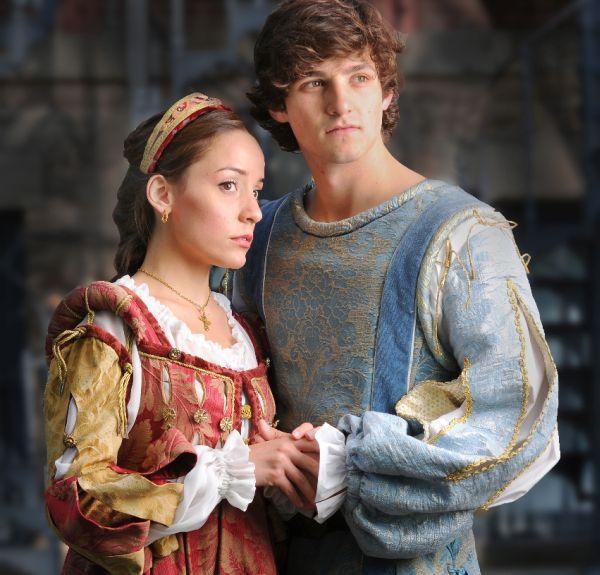
Women were started being viewed as individuals with respect. Shakespeare voiced this concern through his characters, like Juliet, Miranda and the heroines of his comedies like Portia, Rosalind etc. Courtly love was also an important aspect of these plays.
Courtly love was, however, also becoming a subject for parody and Shakespeare, in his sonnets turned the cliches of Petrarchan love into a matter of scrutiny and laughter.
Courtly Love Poems
Poetry on courtly love emphasised on the elevation of womanhood and the humility of the lover. The lady love was seen as a source of inspiration and reverence. Some love poems, however, also portrayed them as cruel and cold for not accepting love.
Poems of Spenser, Sidney, Wyatt etc were imitations of Petrarchan love poetry and emphasised courtly love.
